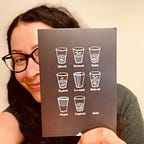Most of us associate caffeine with waking or energy boosting in the morning. So, the idea of a coffee nap may sound crazy to you, as it was for me, but drinking a cup of coffee 20 minutes before your regular nap can be more effective than drinking a cup of coffee or having a nap alone.
This article will find out why and how to take a coffee nap!
Let’s get started!
Why having a nap?
I was never a nap lover; I used to think that naps were only for older adults because my grandmothers were the only people I saw taking “siestas” in my family. But I was wrong; naps can improve alertness, reduce stress, and boost immune response regardless of age. In addition, taking a short nap can boost your energy in the second half of the day, especially if you had a stormy night’s sleep or a stressful morning at work. Napping will help you perform and feel better.
Timing is crucial; A long nap or a nap taken too late in the day may adversely affect the length and quality of nighttime sleep. For most people, a good time is around 2:00 p.m. to 3:00 p.m. It is early enough and won’t interfere with your regular bedtime.
How long should you nap? Ideally, between 10 and 20 minutes; longer than that will lead to sleep inertia https://en.wikipedia.org/wiki/Sleep_inertia, making you feel more tired and groggy. For me, 20 minutes seems to be the sweet spot. But there is no magic formula; some people need 20 minutes, while others can benefit from a 10-minute nap. The best way to find out what works for you is by experimenting.
When you feel sleepy or low on energy, taking a short nap can help you reduce stress and perform mentally and physically better. But if you want to take it to the next level, a coffee nap is the way to go. Let’s discover why and how this works!
What is a coffee nap?
Unlike any other nap, a coffee nap means you can drink a cup of coffee 15–20 minutes before a nap. You may think drinking coffee will keep you awake instead of helping you fall asleep, but remember that it takes time until your body feels the effects of caffeine. How long exactly? You guess about 20 minutes, so timing is vital if you want to benefit from a coffee nap.
A study shows that caffeine+nap was the most effective for subjective sleepiness and performance level; its effects lasted throughout 1h after napping. https://pubmed.ncbi.nlm.nih.gov/14652086/.
How does this work?
To understand better how a coffee nap works, let’s see how caffeine works in our brains. When we drink a cup of coffee, after our small intestines absorb it and pass it into our bloodstream, it crosses our brains. Caffeine attaches to receptors that are usually filled with a molecule called adenosine. Caffeine and adenosine are very similar in structure, but have very different effects.
Adenosine promotes sleep. When we are tired, we have more adenosine in the body, making us sleepy and preventing our brains from overworking. In deep sleep, the body eliminates adenosine, giving us a refreshing feeling, but shorter naps (no longer than 20 minutes) don’t lead to this.
So, if you nap for those 20 minutes, you’ll reduce your adenosine levels just in time for the caffeine to kick in. As a result, the caffeine will have less adenosine to compete with and will be even more effective in alerting you.
Your fist coffee nap!
1) Drink a cup of coffee 15–20 minutes before your usual nap.
2) Go to bed so you are already in bed when you start getting sleepy.
3) Make sure to wake up within 20 minutes so you don’t enter the deeper stages of sleep and are awake when the caffeine starts hitting your brain.
Congratulations, you just had a coffee nap!!!
Note on caffeine: Drinking too much coffee even six hours before bedtime is likely to have disruptive effects on sleep; So I strongly recommend you to keep the caffeine for the morning and to opt for decaf options in the afternoon.
Resources:
https://www.mayoclinic.org/healthy-lifestyle/nutrition-and-healthy-eatin
https://pubmed.ncbi.nlm.nih.gov/9401427/https://pubmed.ncbi.nlm.nih.gov/14652086/ https://www.sciencedirect.com/science/article/abs/pii/S1388245703002554 https://www.smithsonianmag.com/science-nature/this-is-how-your-brain-becomes-addicted-to-caffeine-26861037/ https://pubmed.ncbi.nlm.nih.gov/8026448/ https://pubmed.ncbi.nlm.nih.gov/8936399/
Originally published at http://solsnutritionstories.com.
